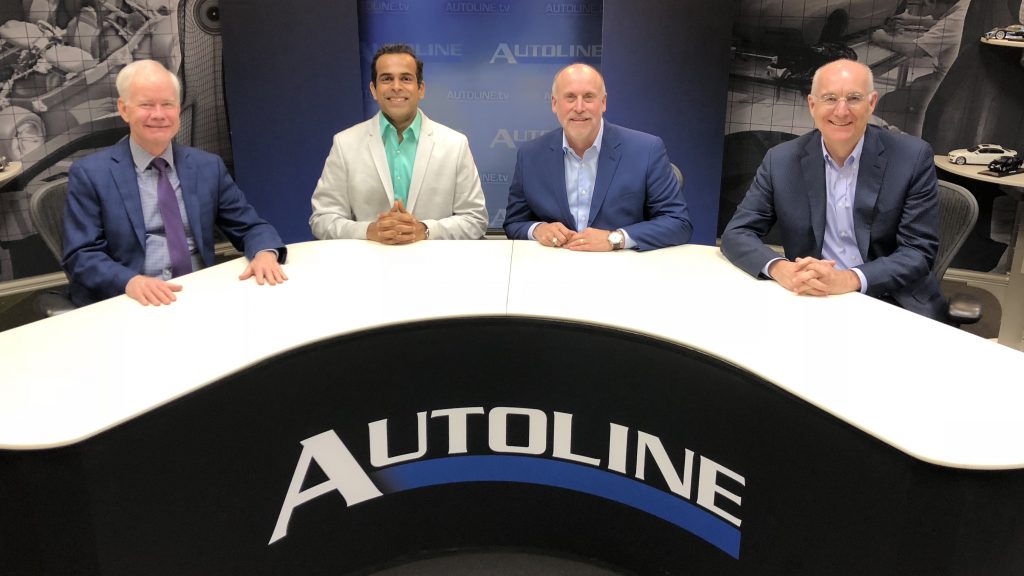
Jeevak, Vice President of Strategic Growth at Sundberg-Ferar was invited to speak about building trust and values into autonomous vehicle design on John McElroy’s “Autoline This Week”. A journalist, lecturer, commentator and entrepreneur, McElroy created “Autoline Daily” as the first webcast of its kind on the automotive industry. He continues to host weekly shows discussing shaping forces in the automotive world. His show, “Autoline This Week”, is a Michigan classic enjoyed by thousands over their morning coffee.
Jeevak, alongside Phil Gilbert, General Manager of IBM Global Design, and Phil Borchard of Dassault Systemes, shed some light on how shifts in the industry are driving vehicle design towards a systems thinking approach, and how designers are becoming “stewards of morality”.
Watch the video here.
Throughout the interview, Jeevak emphasized that paving the way to fully autonomous personal transportation necessitates building trust with the user through human-centered design while also considering their changing values. He echoed the thoughts of Phil Gilbert of IBM who mentioned a quote from Nathan Shedroff (Associate Professor at California College for the Arts): “The role of the designer is to trigger the right response”. (By the way, did you know that in the fifties, Sundberg-Ferar served as design consultant to IBM for their electric typewriter, the “IBM Electric”?) Jeevak discussed how triggering a right response using insights from generative user research and an intuitive visual language is at the core of building a trustworthy autonomous vehicle experience. By leveraging sensory queues in vehicle design that elicit the correct understanding and response from the user intuitively, customers will begin to trust the product, he explained.
Jeevak also elaborated on designing for the average “citizen on the road”. We are finally at a time in history when drivers are taking a stand on the foundational design values and long-term effects of the vehicles they use. In response to customers’ growing awareness of the environmental and social impact of their rides, the automotive industry is now grappling not just with the effect of a product in one context, but with the entire ecosystem in which it will exist.
Finally, Jeevak added, building trust in autonomous vehicles is also a matter of re-familiarizing the public with the demonstrated value of a chauffeured transportation experience. After all, not long ago in our own history, we all enjoyed the luxury of freely working, socializing, or resting en route in trains, buses and driver-operated streetcars. (Incidentally, Sundberg-Ferar has worked on the industrial design of many modern transit systems including PATH in New York, BART in the Bay Area, DART in Dallas, MARTA in Atlanta and a host of others.) Jeevak expressed his confidence that autonomous vehicles will ultimately gain the full trust of users as the industry perseveres in creating positive and human-centered experiences for its customers.